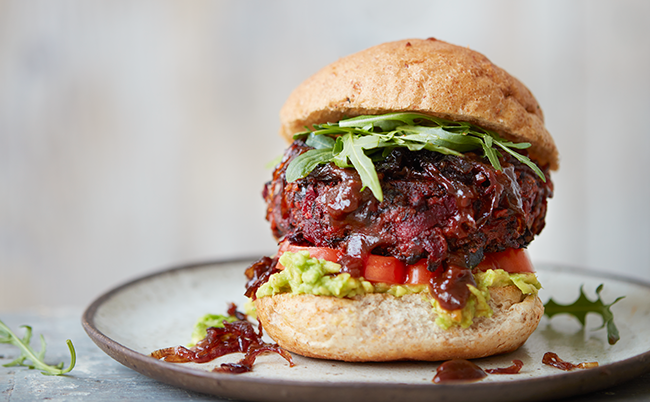Diet Shift Continues in Austria: Veganism Surges While Meat Consumption Declines – vegconomist

The latest Smart Protein survey on European consumers has revealed a continuing diet shift Austria, where the number of vegans has risen 2%, and over half of Austrians have reduced their meat consumption since 2021.
The study carried out by food awareness NGO ProVeg International, in partnership with Innova Market Insights, the University of Copenhagen, and Ghent University, surveyed 7,500 people in ten countries to compare and analyze the eating habits of Europeans regarding plant-based foods.
In Austria, 750 individuals (50% men and 50% women) making the purchasing decisions in their household provided information on their current shopping habits and attitudes towards plant-based foods.
Following the analysis, the figures show that Austria is leading the way in veganism, with the vegan population rising from 3% to 5% since 2021. Notably, 7% of Gen Z respondents claimed to eat a purely plant-based diet. Germany follows close behind, with 4% of the population identifying as vegans.

Meatless diets
Both countries also lead when it comes to meatless diets, with 15% of Austrians and Germans following a vegan, vegetarian, or pescetarian diet. Flexitarian diets are also popular, with 40% of Germans and 37% of Austrians actively reducing their meat intake, while 51% of European meat eaters claim they are actively reducing their annual meat consumption.
29% of the Boomer generation (1946-1964), 27% of Gen X (1965-1980), 28% of millennials (1981-1996), and 26% of Gen Z (1997-2012) recognized themselves as flexitarians.
The study also revealed that meat consumption has fallen significantly since 2013, with figures from the supply balances of Statistics Austria showing that over the last decade, meat consumption in Austria fell from 65.1 kg to 58.6 kg, a drop of 10%, according to the Vegan Society Austria. The motivations for reducing meat consumption include health, animal welfare, and environmental reasons.

The survey says that the Austrian plant-based market is booming. A diet shift continues as 32% of respondents consume plant-based milk every week, and from this group, 28% consume plant-based yogurt and 23% plant-based cheese. 34% also said they are willing to buy more alternatives to cow’s milk in the next six months, and 29% more plant-based meat alternatives.
Challenges in plant-based consumption
However, the study also found that the main obstacle to purchasing these alternatives is price, with 38% of Austrian surveyees stating they find plant-based products too expensive.
“As a vegan society, we have long been calling for an end to the tax discrimination against plant-based milk, which in Austria is subject to a tax rate of 20%, twice as high as cow’s milk,” commented the Vegan Society Austria.
BILLA Austria, which offers 4,000 plant-based products, recently announced a discount on its vegan brand Vegavita to reach price-parity (or even cheaper) with the correspondent animal products, following a trend encouraging a protein transition by European retailers. Additionally, BILLA has opened a new superstore featuring an area called “PFLANZILLA Welt” (PFLANZILLA World), dedicated entirely to plant-based products, and has announced plans to open 20 more.
European perspective
In Europe, the plant-based food market is growing, and confidence in meat-free alternatives is increasing, according to the study. Over half of Europeans surveyed recognize the health and environmental benefits of plant-based foods, and 46% stated trust in plant-based products (the higher number in the last two years). It is worth noting that figures from GFI indicate that sales of plant-based foods are skyrocketing in Europe, increasing by 6% last year and 22% since 2020. The market is now believed to be worth €5.8 billion.
“The first Smart Protein Report from 2021 already showed the enormous potential for a reduction in meat consumption due to the growing number of flexitarians in Europe. This trend is also reflected in the current report: the omnivorous diet is becoming increasingly unpopular,” shared the Vegan Society Austria.




